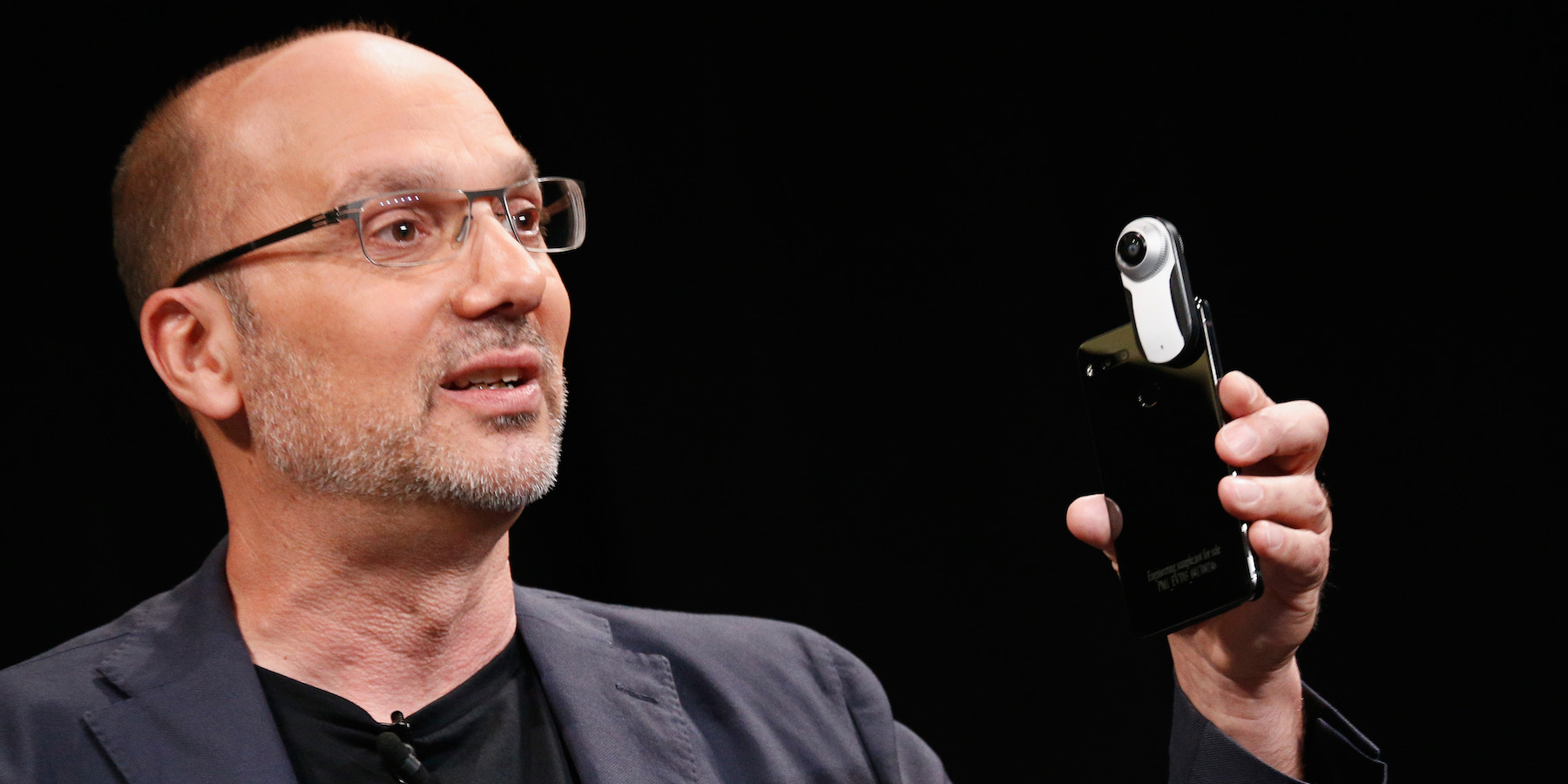- Essential – the startup founded by Android creator Andy Rubin – plans to sell itself, according to a new Bloomberg report.
- The hardware company released its first product, the Essential Phone, last year. But plans have now been scrapped to release a second device.
- Essential has raised $300 million to date and has been valued at around $1 billion.
Essential – the hardware startup founded by Android creator Andy Rubin – has canceled its next smartphone and is now looking to sell itself, according to a report from Bloomberg’s Mark Gurman and Alex Barinka.
The 3-year-old startup has hired Credit Suisse to advise it on a sale, and has received interest from at least one potential buyer, Bloomberg reports, citing anonymous sources.
The potential sale of the company would mark an early end to an ambitious project founded by one of the tech industry’s most well-known smartphone designers. Before launching Essential as part of his Playground Global startup incubator, Rubin helped Google’s Android software become the world’s No.1 mobile operating system.
Essential has raised $300 million, reaching roughly $1 billion valuation in the private markets, according to Pitchbook data.
The startup launched its first product, the Essential Phone, in August of last year. While the phone has been lauded as beautifully designed, it faced shipping delays, poor sales, and stiff competition from the likes of Apple, Samsung and Google. By October, Essential had already slashed the price of the phone by $200 amid reports of poor sales.
Bloomberg reports that the company has sold about 150,000 Essential Phones to date.
According to Bloomberg, Essential had started working on a second iteration of the device, but those plans have been scrapped and employees working on the phone have been shifted to Essential's upcoming smart home product.
The company's website still advertised 36 job openings for roles such as engineers and accountants, as of Thursday.
In a tweet after the Bloomberg report was published, Rubin insisted that the company was putting all of its efforts towards "future, game-changing products" but did not address the report that the company was for sale.
https://twitter.com/Arubin/status/999772765405171712?ref_src=twsrc%5Etfw
Here's a look at the first Essential phone, which Business Insider reviewed in August 2017:
The Phone's square edges, ceramic back and titanium frame give it a premium feel.

Its design makes the Phone heavier and less comfortable to hold than Apple's iPhone 7 or Samsung's Galaxy S8. But it also makes the device more substantial. Picking up the Phone is an occasion. The iPhone 7 and the Galaxy S8, by contrast, feel like mere objects that are just doing their jobs.
Its back is made of ceramic, which is gorgeous.

Like its back, the Phone's edges also have a mirror finish.

The Phone's back includes some of its key features.

You'll find there the device's fingerprint scanner, its dual-lens camera system, and two magnetic, metallic pins that are used to connect add-ons, like a 360-degree camera.
The pins are used to magnetically attach add-ons, like a 360-degree camera and a wireless charging dock.

The 360 degree camera was innovative, though it's not clear if it was a feature that average users wanted or needed. The wireless charger has still not been released.
The Essential Phone was the first device to feature the controversial "notch."

The notch allowed the phone to have a giant screen, with minimal bezel, while tucking the front camera in a special spot. Since then, the notch has been replicated on Apple's iPhone X and countless other Android devices.
The base of the device lacks a headphone jack.

Essential includes an adapter that allows users to plug a headphone into the device's USB-C port. It's similar to what Apple came up with for the similarly jack-less iPhone 7. But it's an inelegant solution for such an elegant device.

